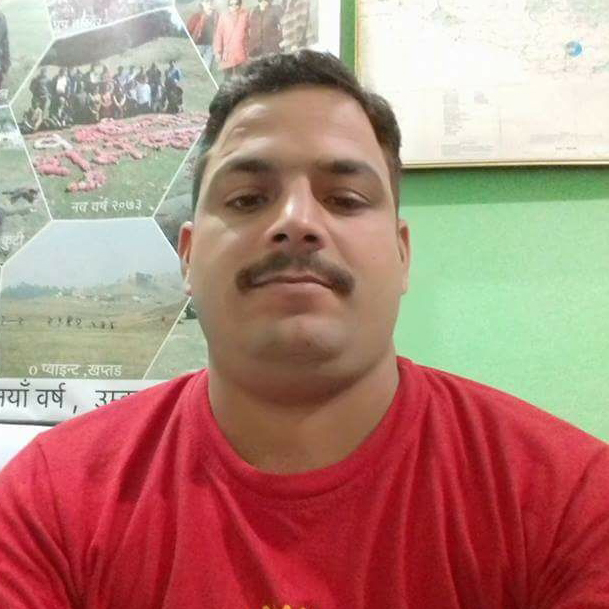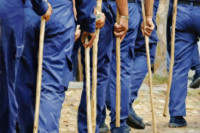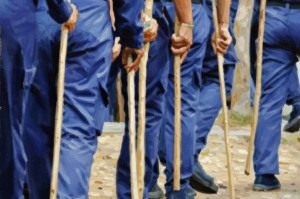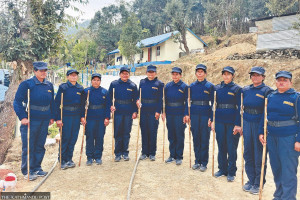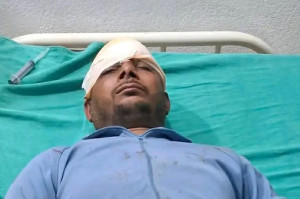Sudurpaschim Province
Shuklaphanta park struggles to save wildlife from traps
With rise in human-animal conflict, villagers are setting traps to catch wild animals.
Bhawani Bhatta
Last week, a leopard fell into a trap in the Majhgaun River at Bhimdatta Municipality-15 near Shuklaphanta National Park. The trapped leopard was rescued by the park the next day but it died two days after being rescued.
According to Manoj Air, assistant conservation officer at the park, the leopard was severely wounded after getting caught in the trap. “He had deep wounds on his backbone. He could not be saved,” said Air. “He died because of the wound and hunger.”
The park administration sent a monitoring team to the Majhgaun River area where the team discovered a dozen traps laid in the river. The culprits have not been identified. “The park is still investigating,” said Air.
A month ago, an elephant from the Dudhuwa National Park of India was also found dead in a sugarcane field near Doda River in Purnarbarsha Municipality-10. The cause of death has yet to be ascertained.
Two months ago, a tiger was found dead near Dhakka camp in the eastern part of Shuklaphanta National Park. The cause of the tiger’s death has not been revealed yet. The tiger, which was found near an encroached settlement inside the park, may have been killed in a fight with other wild animals or attacked by the locals.
"Shuklaphanta borders India and the park area and human settlements are close by,” said Laxmi Raj Joshi, head of the National Trust for Nature Conservation in Shuklaphanta conservation programme. “This creates human-animal conflict and both are in danger of one another.”
According to Joshi, leopards from the park have started wandering into nearby villages in search of easy prey. The animals have been killing livestock and terrorising the local residents. So the villagers have taken to setting traps by themselves to catch wild animals, says Joshi.
“They mostly intend to trap deer and boar but sometimes leopards and elephants also walk into these traps and die,” he said. “We are doing everything in our capacity to protect wildlife and the local population by taking active steps to prevent human-wildlife conflicts.”




 9.6°C Kathmandu
9.6°C Kathmandu